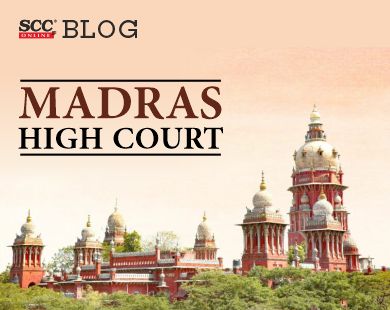Madras High Court: In a writ petition filed for directing the District Collector (‘DC’) to grant the relief to the petitioner as compensation for fire accident due to illegal waste management of fire waste and match factory waste dumped by the Maharaja Fire Works and Rajasekar Match Factory at Karuthoorani Kanmoi situated at Meenampatti to Naranapuram Road, G.R. Swaminathan, J. held that the State is liable as there is a breach of the provisions relating to environmental laws and human safety and directed the DC to pay Rs. 10 lakhs each to the victims. Further, it said that, if any specialised treatment is required by the victims at any point of time in future, it will be provided in any of the hospitals run by the State on a preferential basis.
The Court said that Sivakasi is a well-known hub of fire industries. They obviously generate hazardous waste. The Court after applying the definition of “hazardous waste” given in Rule 3(17) of the Hazardous and Other Wastes (Management and Transboundary Movement) Rules, 2016, (‘Rules 2016’) said that the wastes or substances generated from fire industries would qualify as “hazardous waste”.
Further, it said that it is beyond the dispute that hazardous waste was dumped near the water body in question. The children were obviously unaware of the real character or potential of the dumped material. Being school going boys, they were conducting themselves in a natural manner. Throwing stones by children in the aforesaid surroundings and in the aforesaid manner can by no stretch of imagination be characterized as voluntarily courting danger. They could hardly be imputed with knowledge that the garbage dump would contain hazardous waste. The children had suffered serious physical and psychological damage.
The Court held that there is no material to make the private respondents liable. No doubt, the fire industries were run by the private respondents in the vicinity. But from this circumstance, one cannot infer that they had dumped the waste in question. The Police ought to have conducted proper investigation and found out who had dumped the waste, but it had miserably failed to do so. The police had completely misdirected themselves, as it proceeded on the footing that their job was to enquire as to how the occurrence took place. As, the occurrence took place because the boys had thrown stones at the garbage dump. From this, the investigation officer concluded that the occurrence was a pure accident and there was nothing further to probe.
The Court viewed that this approach of the jurisdictional police reeked of laziness and indifference. The jurisdictional magistrate also ought to have rejected the final report and called upon the police to find out who was responsible for the dumping. However, there is no point in reopening the investigation as it is not going to yield any result. Further, the Court said that it expects the authorities concerned to caution the investigation officers not to close matters when the issue calls for undertaking appropriate investigation.
The Court took note of Section 222 of the Tamil Nadu District Municipalities Act, 1920, and said that the local bodies are tasked with the statutory duty to take care of public health and safety. If there is anything noxious or toxic or capable of causing a nuisance or danger, the local body is obliged to cause its removal. The site where garbage was dumped belonged to the local body. It had the statutory duty to monitor the proper disposal of hazardous wastes.
However, it also said that the duty is not confined to the local body alone, and basically vests with the government. As, Article 21 of the Constitution of India guarantees the right to life and liberty, the Government is under a constitutional obligation to ensure the general safety of the citizens. Further, after taking note of Rule 16 of Rules, 2016, and said that the State is under a statutory obligation to ensure that hazardous substances are handled in such a manner that the general safety of the public is not endangered. This would include the duty to ensure that hazardous waste is dealt with in a manner as prescribed by the Rules.
Thus, it held that in the case on hand, these Rules have been brazenly breached. While the private persons are obviously the violators, the duty to ensure that there is no breach of the Rules is on the State. These are matters in which the principle of absolute liability must be applied. The authorities have miserably failed to monitor the manner of disposal. The negligence on the part of the authorities is responsible for the occurrence.
Further, after relying on M.C. Mehta v. Union of India (Kanpur Tanneries – 22-9-87), (1987) 4 SCC 463, M.C. Mehta v. Kamal Nath, (2000) 6 SCC 213, M.C. Mehta v. Union of India (Shriram – Oleum Gas), (1987) 1 SCC 395, said that the principle of absolute liability can be invoked not only against industries that act in breach of the provisions relating to environmental laws and human safety, but also against the State authorities when they fail to ensure adherence to safety standards.
Thus, the Court held that the State is liable, and granted Rs. 10 lakhs compensation each, to the victims.
[Sankareswari v. District Collector, 2023 SCC OnLine Mad 407, decided on 20-01-2023]
Advocates who appeared in this case :
For Petitioner: Advocate S. Muniyandi;
For Respondents: Special Government Pleader M. Lingadurai, Government Advocate B. Thanga Aravindh, Advocate N. Sathish Babu.
*Apoorva Goel, Editorial Assistant has reported this brief.







